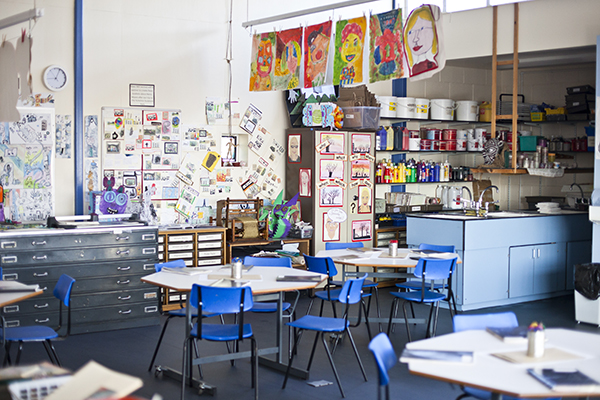Searching for literature. For anyone trying to build a coherent argument for an essay, a work proposal or a new programme of work, finding relevant research can be an overwhelming and – at times – disheartening process.
Our second Evidence Champions Network webinar focused on search strategies to use when looking for the research that is most appropriate to your work. Here are the top four questions that run through my head when faced with finding the best of what’s been written on a specific subject area, and how you might address them:
1. There’s so much to go through. How/where do I start?
The internet is so incomprehensible in size that it can feel quite daunting to search for the (sometimes quite niche) content relevant to your work. Given the digitisation of research and intellectual content, the internet provides access to a potential goldmine of resources. The problem is, putting your finger on the exact thing you’re looking for can be an issue.
Another challenge I face, and that we have heard from our Cultural Learning Evidence Champions, is finding the time to digest a research paper or report fully and, sometimes, to understand the language used. There is no magic bullet for translating research findings so they are applicable to your context; it does take time. But the benefits that stand to be gained from learning from others is certainly worth that time.
2. Lots of the papers I find cover broad topics. How will I find something that’s specific to my work?
Using effective search strategies can help you find what you need to, much quicker. Literature searching shouldn’t be a chore. While it may be a little cumbersome at first with those unfamiliar with it, once you’ve embedded the methods into your day to day work, ultimately it will save you time and make you significantly more effective at finding relevant research and evidence.
Start by constructing a clear and specific research question and breaking this down into search terms. You can then create phrases to enter into your search engine of choice (otherwise known as search strings) using Boolean operators: ‘AND, OR and NOT’, these help ensure that you only get the information you want; for example “children” AND “music education” OR “music learning” NOT “extra-curricular” would ensure that that you receive results that include both phrases to describe music education and are linked to children. Following your initial searches, adapting your search terms to ensure you are searching for commonly used vocabulary are key elements of a targeted strategy to find the ‘right’ information.
My colleague Atif Shafique recently gave a presentation to the RSA’s Cultural Learning Evidence Champions to demystify approaches to finding relevant, useful research. To watch the presentation and gain further insight into the strategies mentioned above, please visit the resources section of the Learning About Culture website.
In asking for Atif’s reflections on the presentation and the discussions had, he said he felt:
“Literature searching is not a narrow and tightly defined methodology as much – it’s more a suite of tools and methods that can be deployed in different ways according to your needs. Literature searching is as much an art as a science – it helps to be creative when you develop, refine and iterate your searching methods. As you engage with the process over time, you’ll discover methods and techniques that work best for you or your subject matter.”
3. How do I know what’s high quality?
There are databases out there to help. At the first Evidence Champions webinar, we heard from James Doeser at CultureCase, where they do a lot of work to carefully select and translate academic research from universities and scholars around the world that can add value to the work of the cultural sector. Our partners on the Learning About Culture programme, EEF, have a rich source of studies their Teaching and Learning Toolkit. For more detail on this, my colleague Mark Londesborough has written a blog looking in detail at how to spot trustworthy research.
The Cultural Learning Evidence Champions have told us that often they use newsletters from organisations they trust to keep up to date with current research. This certainly has a place, but it means accessing only a tiny slice of the research available and it may not be relevant to your practice. It’s worth using this as a starting point and following up references that these papers make to broaden your research base. However, doing your own searches is likely to be even more fruitful for finding the pieces that are most relevant to your work.
4. Isn’t the internet just full of cat memes and people shouting at each other anyway?
While it can seem like the above is true if you spend more than five minutes on Twitter, there is plenty of well-reasoned and enlightening research that breaks through the cacophony of general internet noise. So, the next time you’re faced with the prospect of searching for evidence – don’t despair, face the challenge head on with a set of practical tools to help you quickly sift to the information that’s right for you.
If you know of a school whose commitment to the arts and cultural education has transformed outcomes for students, staff or the whole school, we want to hear from you. The RSA is looking to speak to schools whose commitment to the arts drives their improvement. Read this blog to find out more!
Related articles
-
What we can learn from 8 schools with great arts education
Danielle Mason
The RSA spoke to arts-rich schools across England. Their stories show a range of creative solutions for achieving an arts focus.
-
Has Ofsted’s new inspection framework created an opportunity for arts education?
Fran Landreth Strong
Arts education has taken a beating in recent years. A new focus on curriculum, rather than outcomes, is a reason to be optimistic.
-
Go forth, Evidence Champions!
Mark Londesborough Sam Grinsted
The RSA launches The Cultural Learning Evidence Champion’s Handbook to support arts and cultural educators to get to grips with ‘evidence-rich practice’.




Be the first to write a comment
Comments
Please login to post a comment or reply
Don't have an account? Click here to register.